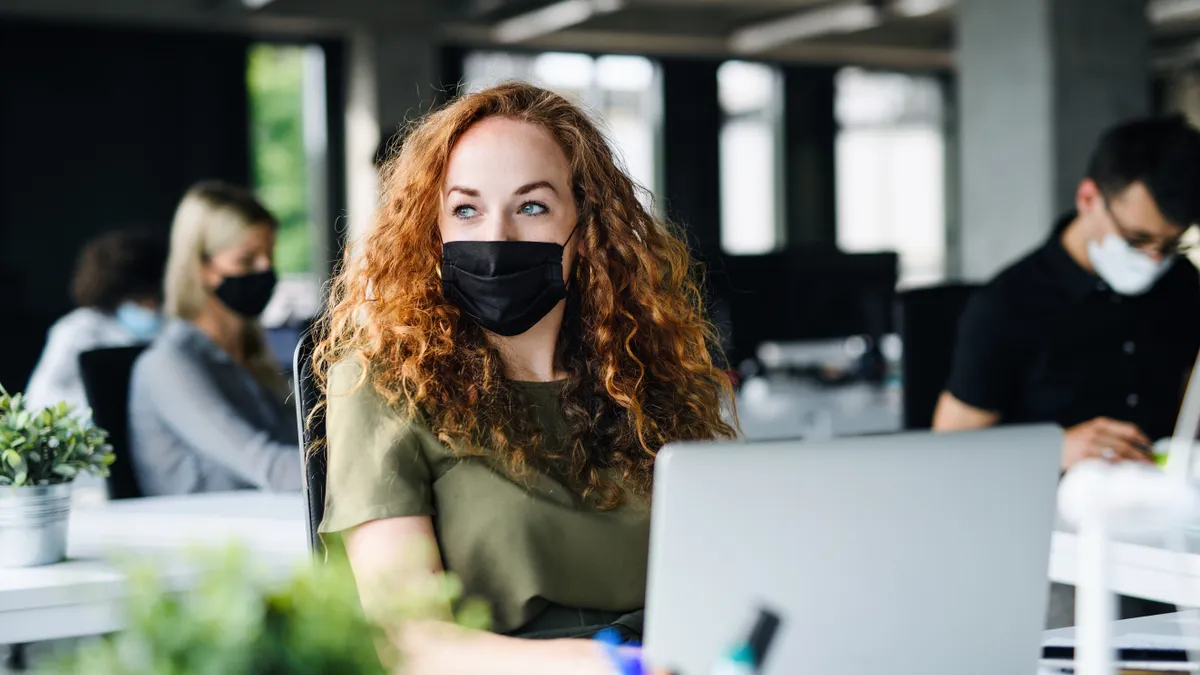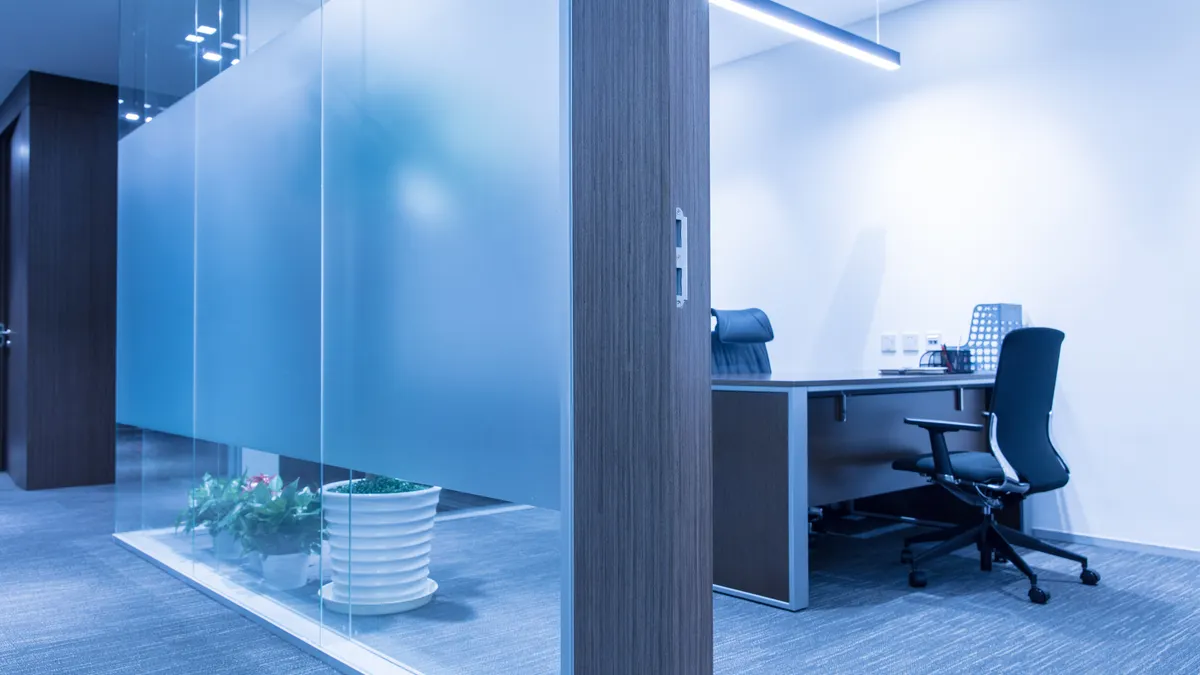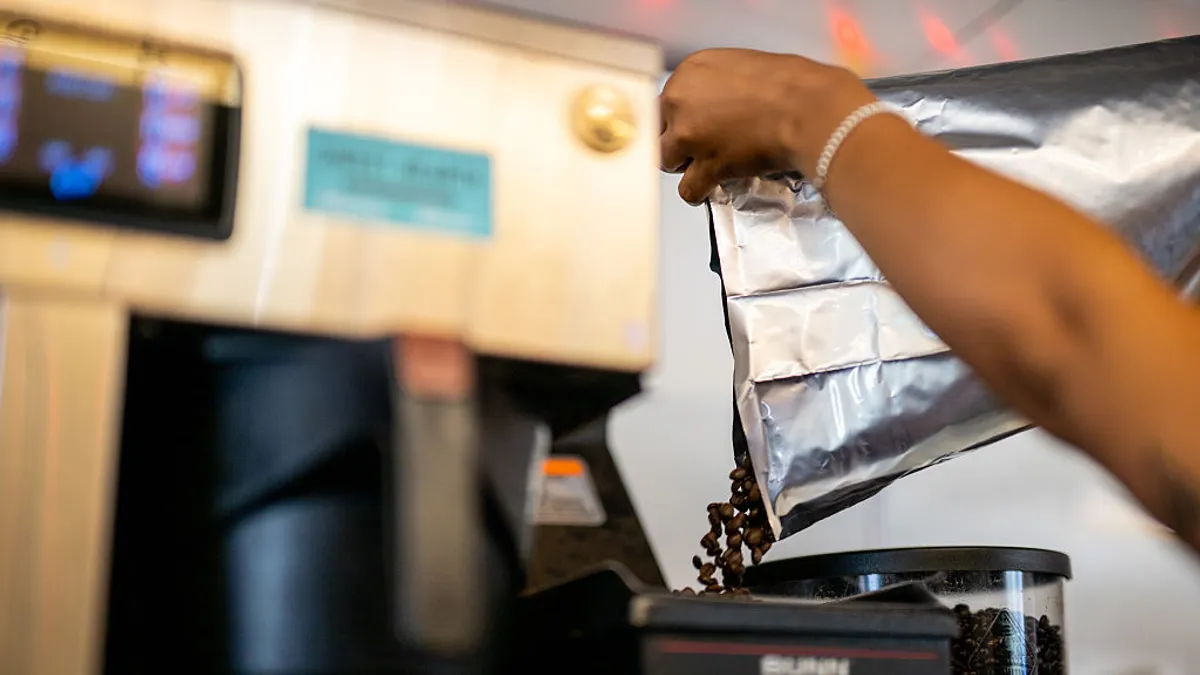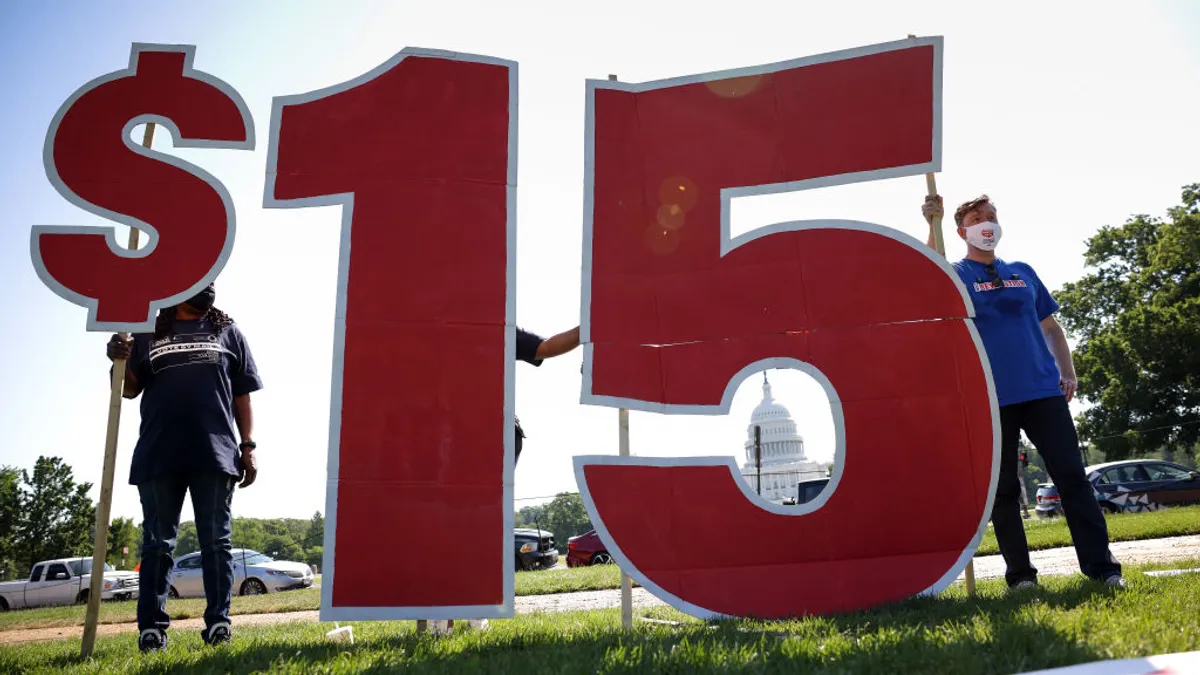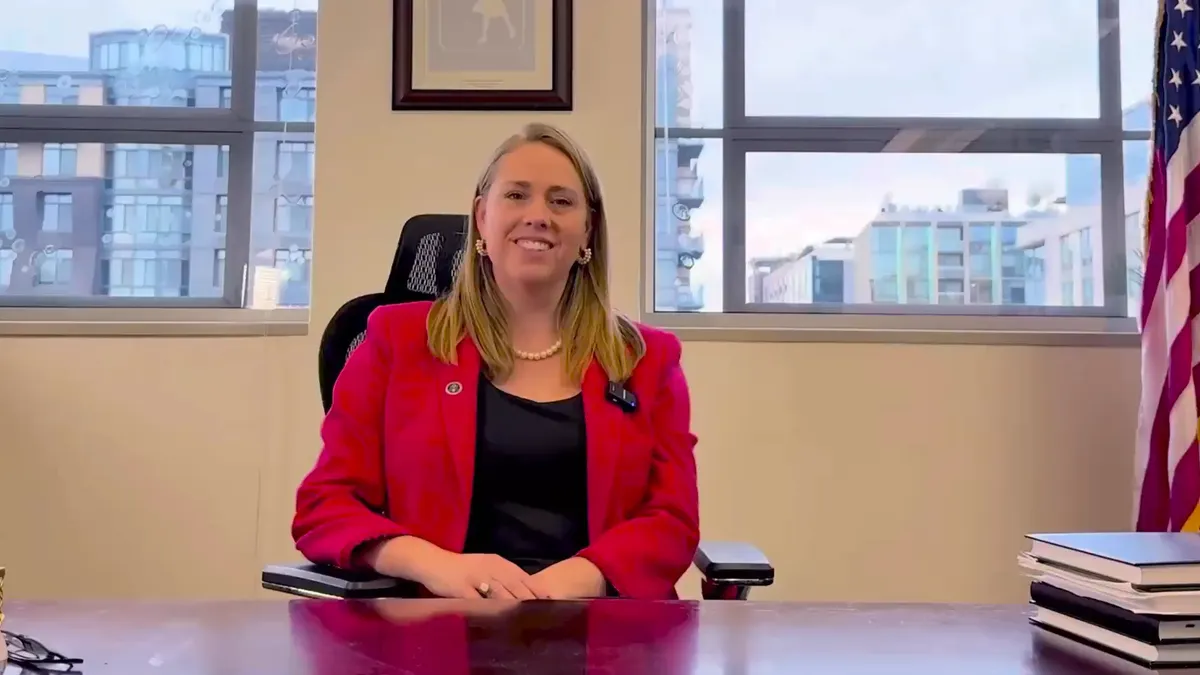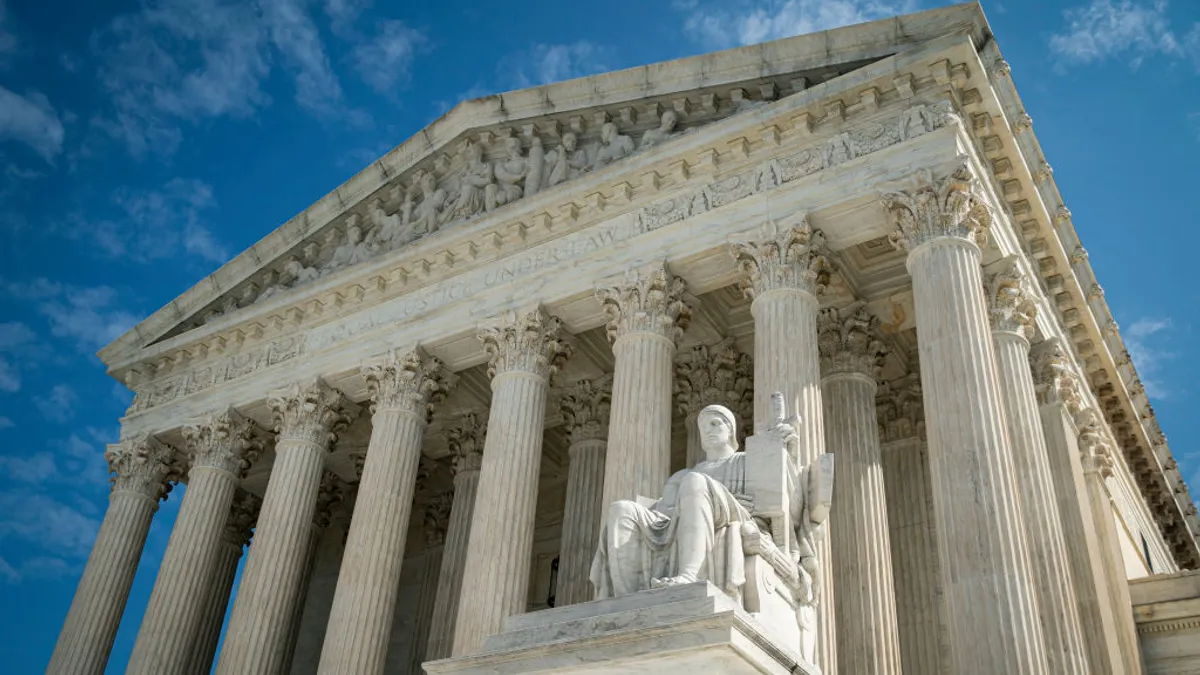As the United States nears its one-year anniversary of coronavirus-related restrictions, employers should prepare for employee lawsuits claiming individuals were infected at work, legal experts said during a Dorsey & Whitney LLP webinar Jan. 21.
"It's crystal clear that the pandemic is not over, even though we do have a vaccine that's out there being administered," Douglas S. Lang, counsel at Dorsey, said. But "there's no vaccine for the new wave of litigation," Lang said; "It's growing by leaps and bounds for negligence lawsuits brought on behalf of people who claim they contracted the disease in the course of their employment, or as patrons in all kinds of businesses." The panel discussed the basis of these claims and what businesses can do to guard against liability.
State liability shields
Generally, businesses must address the well being of both patrons and employees on its premises, the attorneys said. But how this is executed can depend on the state.
It looked like there could have been a federal liability shield on the table with the most recently passed coronavirus relief bill, but ultimately, it was not included, Shevon D.B. Rockett, partner at Dorsey said. "Many states haven't adapted their own liability shields either through executive orders or through statutes and laws," Rockett said; therefore, state liability shields vary tremendously. For example, in Tennessee, a complaint must include a physician's certification that the injuries, or in this case coronavirus exposure, was caused by the business named in the lawsuit, Rockett explained. "In other states, [like Arizona and Iowa] a good faith effort to comply with public health guidance is sufficient to be a barred liability," she said.
Some states have "broad protections that cover all businesses that are open pursuant to state COVID business regulations." Rockett said. In comparison, some states focus specifically on healthcare providers, and others also include [Personal Protective Equipment] manufacturers, she said. In addition, there are states that have enacted laws specific to this particular pandemic, and others "had laws on the books already that shielded healthcare professionals and healthcare facilities when there is a state of emergency," Rockett said. Generally, the lawsuits have "common characteristics that cover both actual and potential exposure but don't protect against willful or reckless or intentional conduct," she added.
"I anticipate that in the coming months, there will be additional state liability shields and nuances that we'll all need to watch with respect to both patrons and employees," Rockett said.
Insurance coverage
In regard to employer liability, if a patron is suing for contracting the coronavirus, "you're going to be looking at your third party liability coverage," Katie Pfeifer, counsel at Dorsey said. Employers will need to look at the company's general liability policy, employment practices liability (EPL) insurance and worker's compensation coverage, Pfeifer said; "You likely have a suite of potential coverages that might apply."
EPL generally provides no coverage for bodily injury claims involving COVID-19, Pfeifer said. But it may apply if an employee claims to have been fired due to an issue that arose out of the coronavirus pandemic, such as claiming to have been subject to a reduction in force or being discriminated against, she said. "I think back in July, we were talking 600 claims at that point that at least implicated EPL insurance," Pfeifer said. The reasons for the high number of claims is well known — "employers have had to act hastily; and sometimes the decisions have not been [made] as well as they could have been," she said.
With "[Commercial generation liability insurance] CGL coverage — if a third party comes in is injured, or in this case contracts COVID-19 and sues you — there is potential coverage under your CGL policy," Pfeifer said. Potential hurdles to coverage under a CGL policy are the expected or intended injury exclusion, for example. "That's going to apply if there's an allegation that you didn't take the precautions you should have taken," Pfeifer said. "I think that would be a hard argument for an insurer to make."
Employers' responsibilities to employees
"The employer always had a common law duty to keep the place of employment safe," Gabrielle Wirth, partner at Dorsey said. "Those responsibilities have additionally been enhanced by OSHA, both on the federal and the state level."
An employee not covered by workers compensation, which "most states do have now," can pursue an ordinary negligence claim, if the "employer does not take reasonable steps to keep the workplace safe," Wirth said. In response to the pandemic, some states have said "we will go ahead and extend workers compensation to all employees who become ill with COVID, if they are being required to work in the workplace," she said; Minnesota and California have done so, for example.
Wirth noted that the firm is starting to COVID-19 lawsuits related to unpaid wages for temperature checks and certifications; failure to reimburse employees for expenses such as home internet; failure to provide COVID-19 paid sick leave or emergency Family and Medical Leave Act pay and time off; exceptions to workers' compensation exclusivity; failure to provide a safe environment; failure to accommodate disabilities; and discrimination or harassment based on disability, COVID-19 stereotypes or age.
"Some employers, very rightfully from a moral standpoint, worried about their older workers, or workers who were obviously disabled with something that would make them more susceptible [to COVID-19]," Wirth said. "But you can't treat people differently because of their disability or their age. That should be something that is an interactive process, not a blanket rule."



